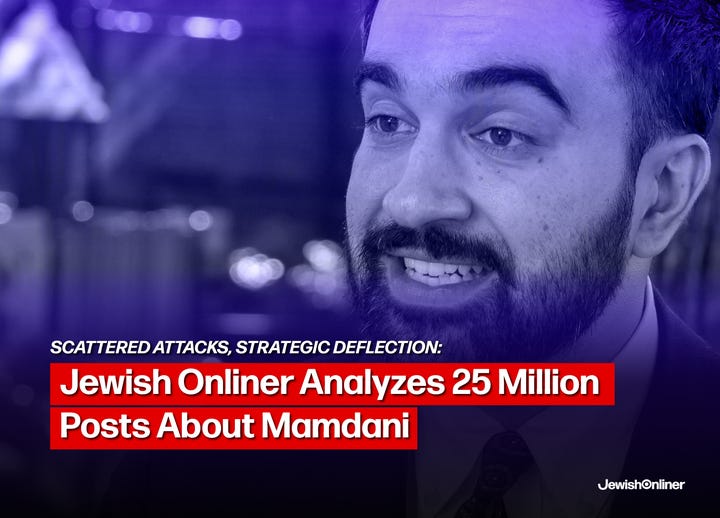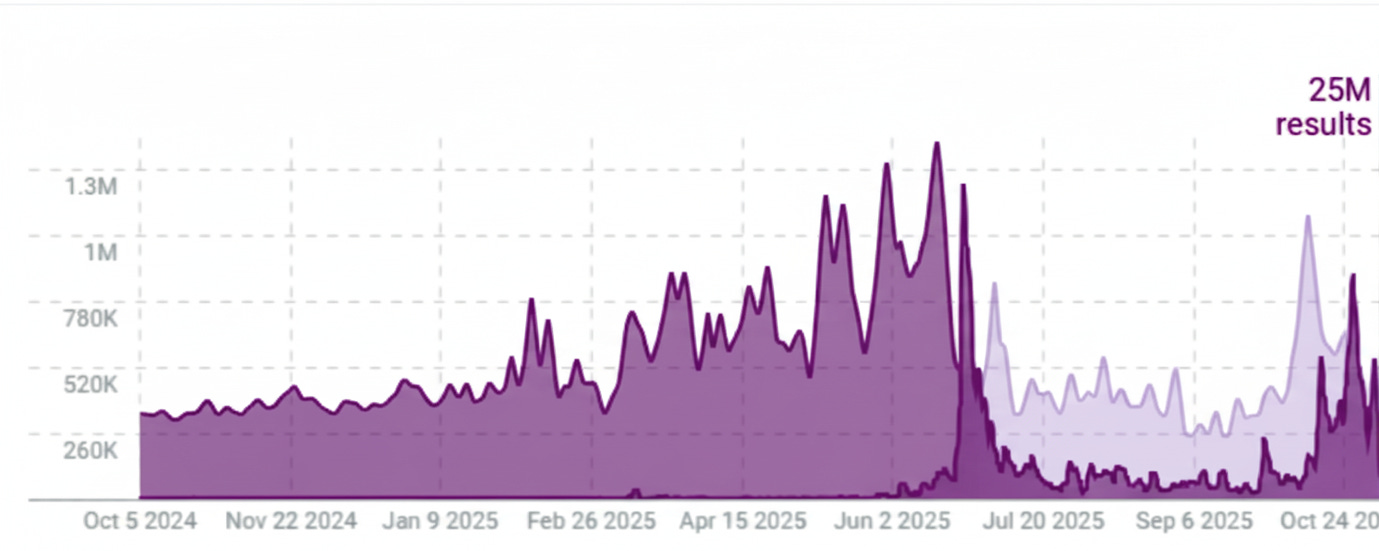Scattered Attacks, Strategic Deflection: Jewish Onliner Analyzes 25 Million Posts About Mamdani
The analysis reveals that Mamdan's anti-Israel rhetoric over 12 months generated nearly as much traction as all criticisms against him combined, redirecting scrutiny from his radicalism
As New York City voters head to the polls today for the mayoral elections, a new social media analysis by Jewish Onliner reveals that online discourse surrounding democratic socialist candidate Zohran Mamdani has been extensive yet fragmented over the past year.
Between November 4, 2024, and November 4, 2025, the word “Mamdani” appeared in roughly 25 million posts on X and Bluesky, generating approximately 315 million engagements. Roughly 90% of the posts analyzed were on X.
Despite the enormous volume of discussion, the analysis found no single dominant narrative driving criticism of Mamdani, a state assemblyman and prominent figure in New York’s far-left political scene.
Scattered Attacks, Minimal Narrative Coherence
Only a small fraction of social media posts criticizing Mamdani contained recurring labels or themes:
4.4% included the word “communist,” despite critics often describing him as such in traditional media.
3% mentioned “terrorist,” primarily referencing a recent photo of Mamdani posing with an unindicted co-conspirator in the 1993 World Trade Center bombing.
2.2% used the term “radical.”
2.2% referenced “intifada,” tied to the slogan “globalize the intifada,” which Mamdani is associated with.
2% contained the word “police,” primarily in connection with his calls to defund law enforcement.
Other terms like “jihad” or “jihadist,” which some critics have associated with Mamdani, did not appear in the top 100 most common words linked to his name over the past year.
Israel-Related Mentions Rival Criticism
Notably, posts referencing Israel or related topics appeared nearly as frequently as all of the anti-Mamdani categories combined.
6.1% of all posts containing “Mamdani” also included the word “Israel” or “Israeli.”
1.6% mentioned “Netanyahu.”
1.5% included the word “genocide.”
This pattern suggests that Mamdani may have successfully redirected scrutiny away from criticisms of his domestic positions by making attention-grabbing statements about Israel. Rather than defending against attacks on his policy agenda, the candidate appears to have shifted the conversation to Middle East politics, effectively drowning out other controversial narratives about his background and governance priorities.
A Polarizing but Diffuse Figure
Taken together, the data paints a picture of a political figure who commands immense online attention but faces no cohesive opposition narrative. While Mamdani has been described by critics as a radical or even sympathetic to jihadist movements, online discourse has remained highly diffuse, with little sign of coordinated messaging or thematic focus.
As the city’s voters cast their ballots, the digital footprint surrounding Mamdani underscores a broader truth about New York’s polarized political climate: the conversation is loud — but not unified.




